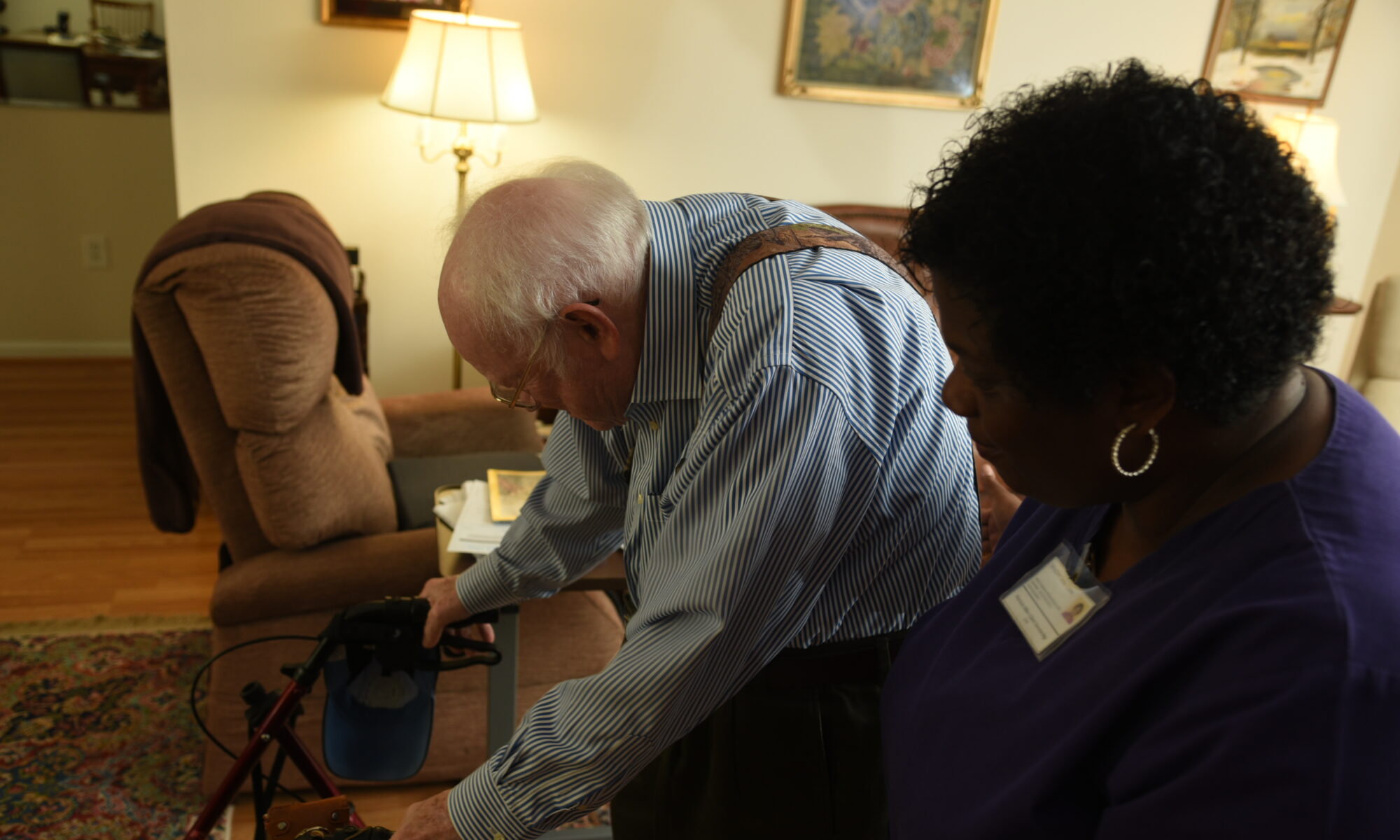Living independently in your own home is an important transition for most seniors as they prepare to transition out of the adult world and into retirement. But, living on your own often brings with it a host of new security concerns that may have previously gone unnoticed or not even been acknowledged by you and your family. To help seniors who live independently, it’s essential that their friends and family provide them with the proper resources, support, and direction they need to remain safe and secure. Read on to learn more about how you can meet the needs of seniors who live independently in their homes.
MAKE A PLAN FOR 24-HOUR SENIOR CARE
Living independently at any age requires a great deal of self-care and self-responsibility. The older you get, the more you have to think about your own health and well-being, and the less people around you can do for you. So, it’s essential that you make a plan for who will take care of you when you need assistance. To make the best decision when it comes to the kind of help you’ll need, start by thinking about the needs of your loved ones, your own needs, and your budget. Then, use these questions to help you make this important decision. – Where does your loved one live? If they live in a retirement community, then you may not need to worry about 24-hour care. But, if they live alone in their own home, then you may want to consider who will take care of them at night. – How old is your loved one? The older they are, the more likely they’ll experience health issues and the less they may be able to do for themselves. If they’re in their 90s or older, then it’s likely they’ll experience more health issues and require 24-hour care. – What is your loved one’s health condition? This can be a major factor in deciding who will provide 24-hour care for your loved one. For example, someone with a serious health condition like dementia, Parkinson’s, or Alzheimer’s may need round-the-clock care, whereas someone with a minor ailment may only require assistance during certain hours of the day.
DEVELOP A SAFETY PLAN
Living independently is a major step for seniors, and the transition can be challenging for both the person and their loved ones. To help your loved one transition to living on their own, work with them to develop a safety plan. Working together to create a safety plan will help you and your loved one better understand what to expect as they make this important transition. Plus, it can help you better understand any safety concerns that your loved one may have. A safety plan can be anything from a list of phone numbers, medications, and emergency contacts, to a list of house rules and responsibilities. The key when developing a plan is to make sure it’s something that works for your loved one and something that they can easily follow.
ENCOURAGE INDEPENDENCE
It’s important to help your loved one develop the skills they need to remain safe and independent. To do so, make it a goal to encourage your loved one to become more independent. There are several ways you can do this: – Offer to help with daily tasks like grocery shopping and house cleaning that will help move your loved one toward living independently. – Help your loved one learn how to manage money, such as setting up an account, paying bills, and investing. – Help your loved one develop daily activities that help them stay busy and out of their heads, like exercising or joining a book group. – Respect your loved one’s privacy, and make sure they feel comfortable asking you to stay out of their daily lives.
As your loved one begins to live independently, they’ll need to make some adjustments to their daily lives. Therefore, it’s important to help your loved one make these adjustments as quickly and painlessly as possible. To do so, try to make sure that your loved one has what they need when they need it. For example, make sure there are enough toilet paper rolls, medications, food in the fridge, and enough money in their bank account. If you notice that your loved one is having problems coping with the changes, help them get back on track as soon as possible. You might want to try some of these strategies: – Recognize that your loved one is likely experiencing a natural transition period, and it’s common for people to have a few bumps during this process. – Help your loved one understand that they’re not alone, and there are resources available to them. – Make sure your loved one has access to their phone and/or computer, so they can access online counseling services and 24/7 Crisis Support.
PROVIDE PHYSICAL SECURITY MEASURES
Physical security measures are a must for all seniors who live independently. There are several ways that you can help promote physical security for your loved one. – Offer to help your loved one learn about home safety, such as which door locks work and which ones to replace. – Make sure your loved one understands the importance of checking their home each day for any potential safety hazards, such as a broken railing or loose floor tile. – Help your loved one understand the importance of having a home security system, so that they can feel safe in their home when they’re not there.
Living on your own is a big step for most seniors, and the transformation can be difficult and scary. Living alone requires a great deal of responsibility, and so it’s important that your loved ones help you meet these challenges head-on. To help your loved one with the transition to living independently, you can: Make sure they have what they need, help them learn how to cope with changes, and help them get a home security system.


